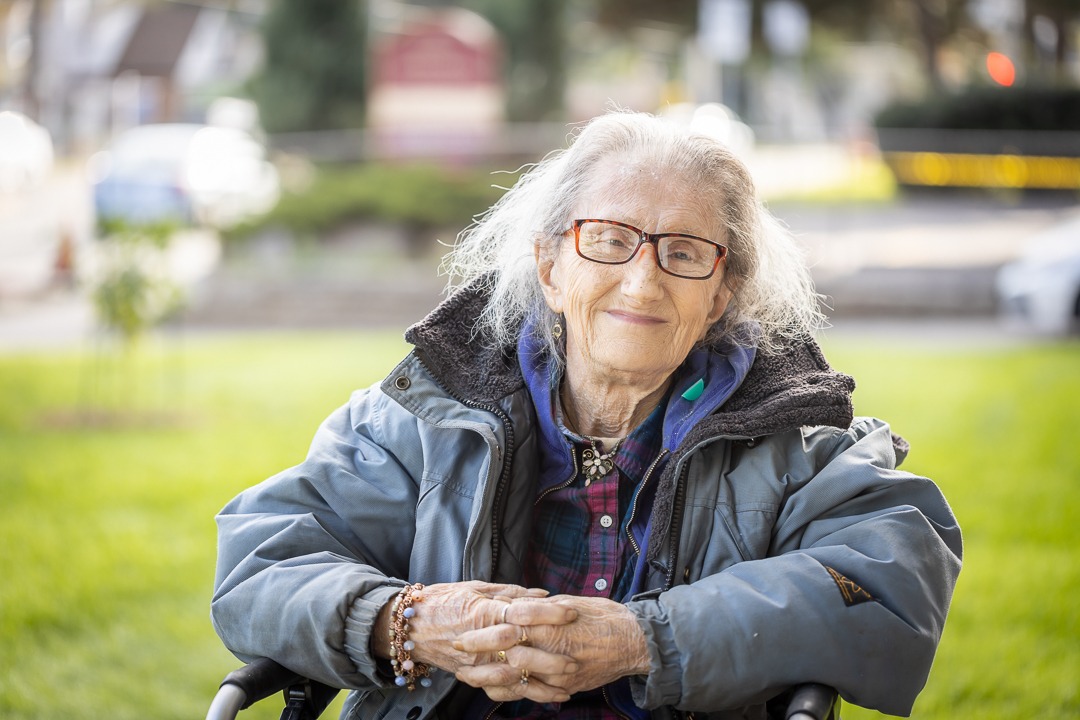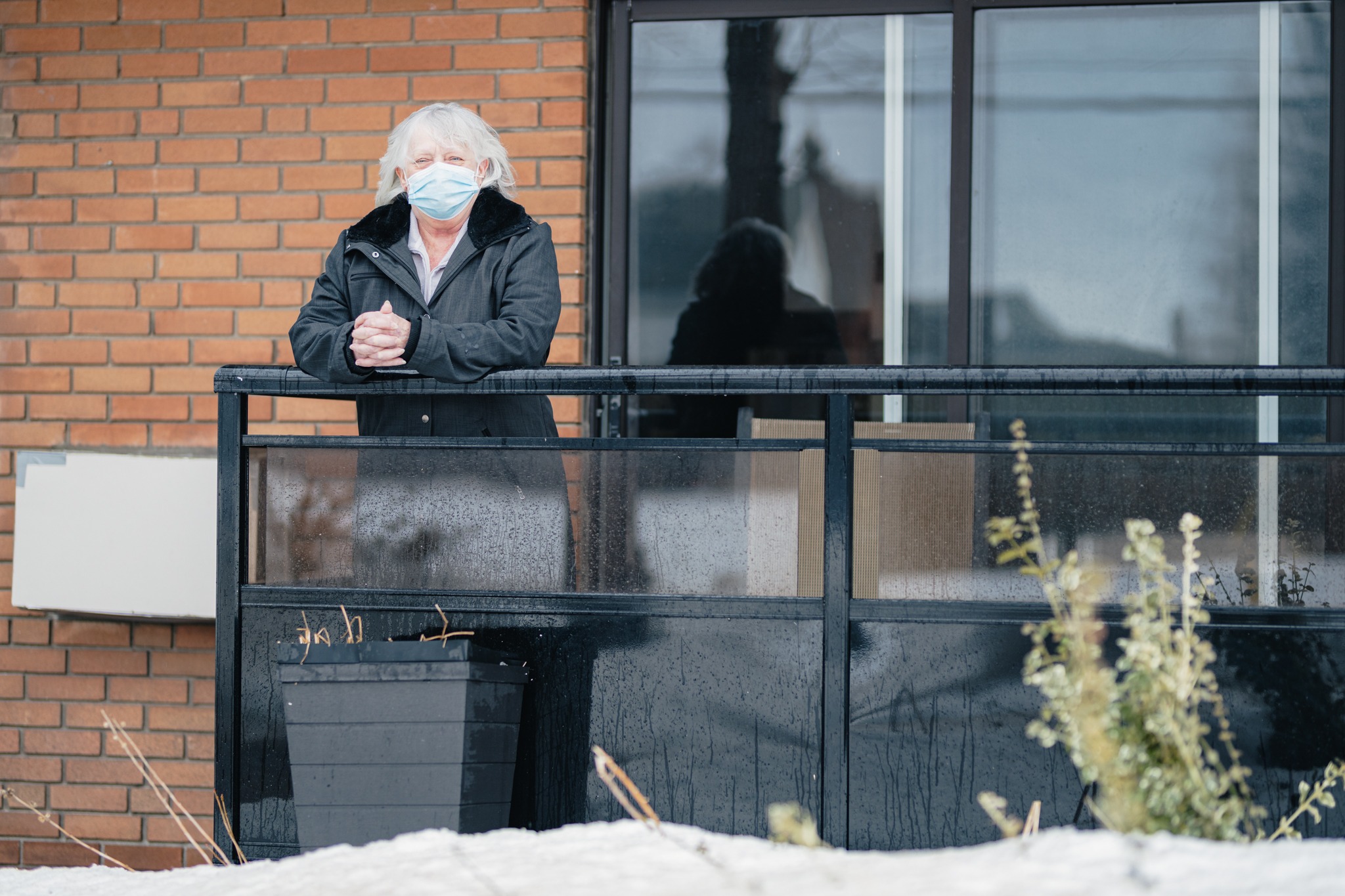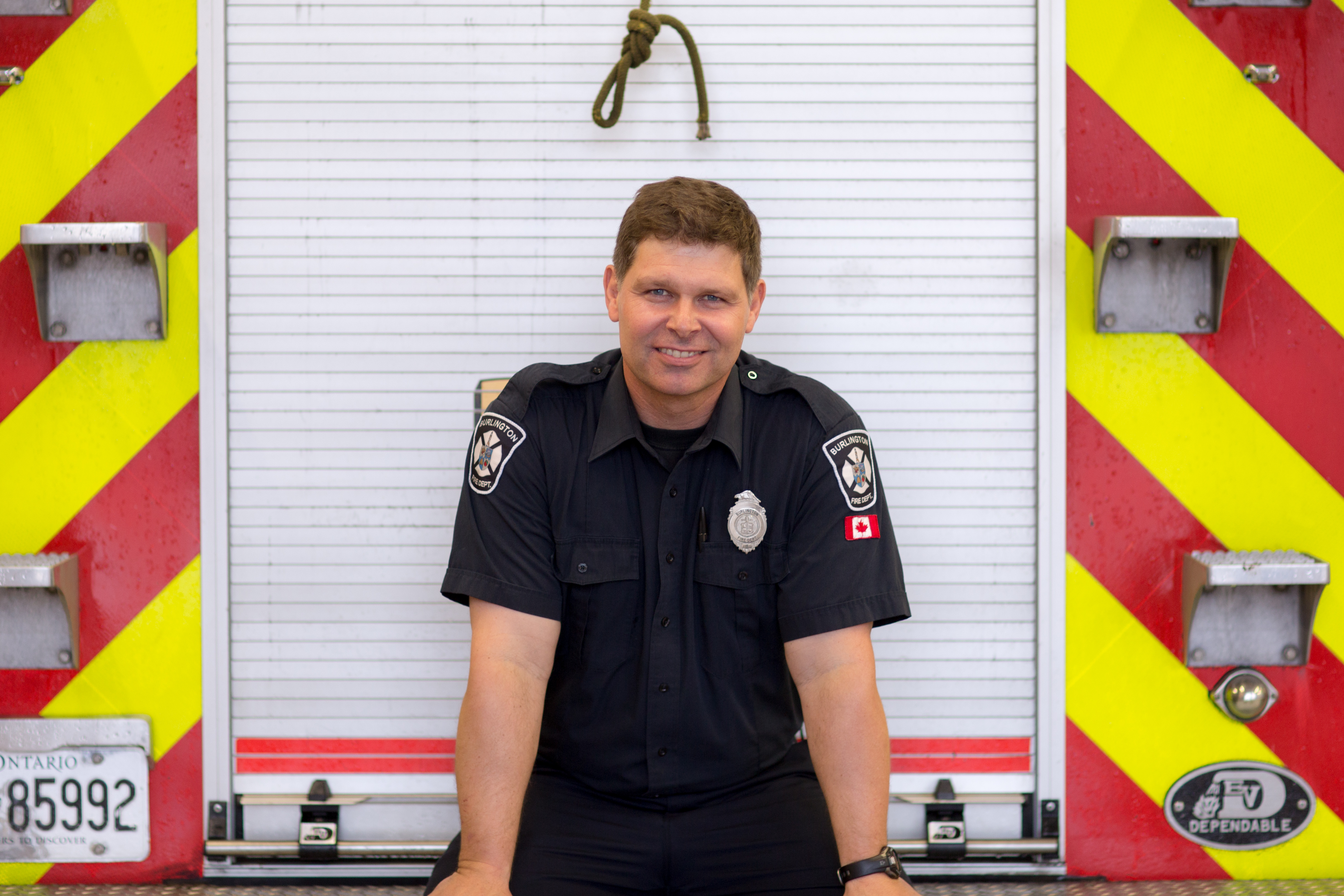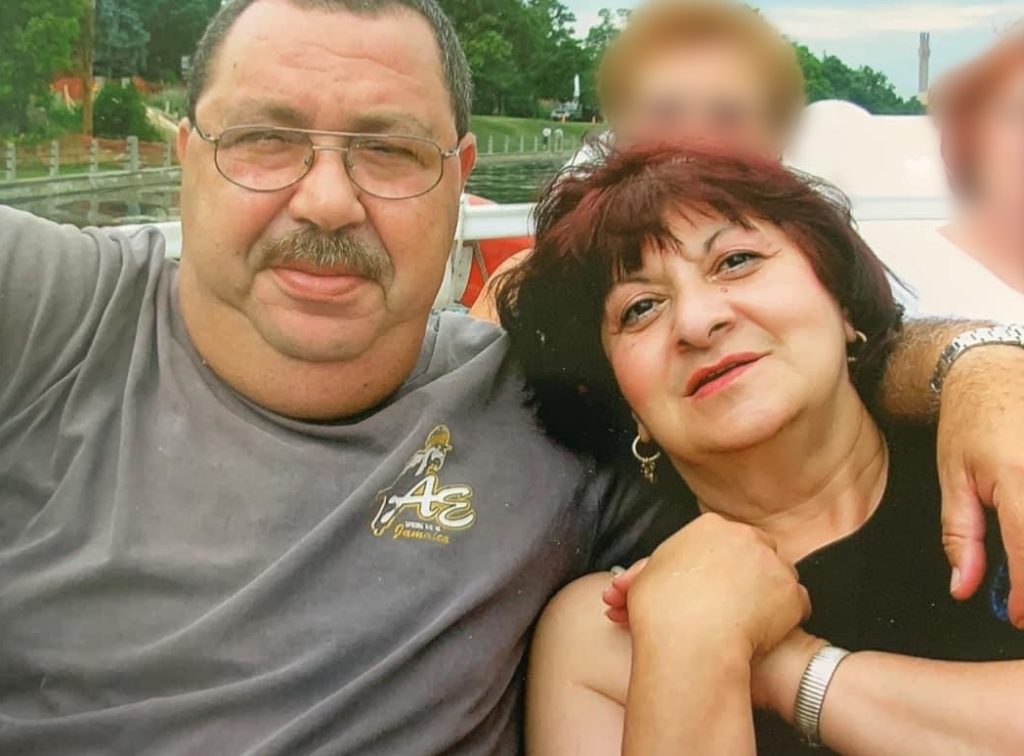
Family grateful for paramedic angels who provided end of life care at home
You might think of paramedics as people who race to the scene of a trauma such as a car crash, provide emergency care onsite, and then rush patients to the nearest hospital with sirens blaring. While paramedics do this, paramedics in the region can also support end-of-life care for patients with a life-limiting illness at home, rather than going to the emergency department — thanks to a research project with Hamilton Health Sciences’ (HHS) Centre for Paramedic Education and Research (CPER).
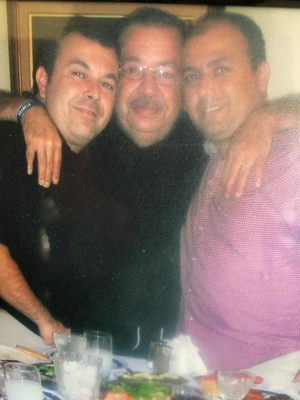
Avi Hollo pictured with his father Israel and brother Mordo. Avi says it takes a special type of individual to work as a paramedic providing end-of-life care.
Avi Hollo says when his father, Israel, took a turn for the worse with his long-term lung cancer, he and his family were cared for by the “angels” who work as paramedics with Niagara Emergency Medical Services. Even though he wasn’t yet in a formal palliative care program, the paramedics were able to honour his father’s last wishes to not go to the hospital, and receive the care he needed at home.
Calling 911 after a fall
Israel Hollo was diagnosed with lung cancer years ago. Doctors gave him just four months to live, but he was able to spend 12 extra years with his family. During this journey, he made one thing clear: when the time came, he wanted to die at home.
In August 2022, Israel’s health declined rapidly and he decided to stop chemotherapy. His oncologist referred him to a palliative care team to care for him as he neared the end of his life. But the referral process wasn’t instant.
“That week, my dad’s health plummeted right before our eyes as we were waiting to be contacted by the palliative team,” says Hollo. “In times of his alertness, which was far and few between that week, he consistently reminded us that he did not want to see anymore hospitals and wished to stay in the comfort of his home.”
Before Israel was able to see a palliative doctor, he suffered a fall and his family was not able to help him up, so they called 911.
“As we made that phone call, with my dad on the floor, he looked at us with the biggest disappointment.”
To the family, it meant that their father would be taken to the hospital. But they weren’t aware of a new program that trained paramedics in caring for palliative patients at home.
Providing care at home
CPER provides certification, education and quality oversight to nine paramedic services and over 1700 paramedics responding to over 200,000 ambulance calls annually in Dufferin County, Region of Waterloo, Guelph-Wellington County, Niagara Region, Norfolk County, Haldimand County, Six Nations, Brant-Brantford County and the City of Hamilton. CPER developed an innovative palliative care program three years ago with Niagara EMS. Patients who are receiving a palliative approach to care and wish to remain at home can access specially trained paramedics to support them when they call 911.
The program was developed in partnership with Niagara EMS, HHS CPER, Home and Community Care Support Services, Regional Palliative Care Network, and physicians who provide palliative care services. Similar programs are now in place for all paramedic services across the CPER region. In part, this program closes a gap in care for those in the community.
When the paramedics arrived at the Hollo family home, they learned of Israel’s wishes.
“While we were waiting, the first group of paramedics helped my dad to his bed, comforted him and informed us that they would not take him to the hospital,” says Hollo. “My dad looked directly into my eyes, alert as ever and said, ‘Thank you!’ These were my dad’s last words to me.”
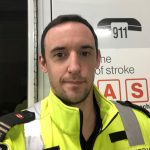
Paramedic Terry Lovegrove
Terry Lovegrove was one of the paramedics who responded that day. The 911 call was for a general fall, so once the team lifted Israel up, checked his vitals and made sure he wasn’t injured, they had a conversation with him and his family. “Their ultimate goal was to keep him at home,” says Lovegrove, “so we called dispatch to call in the palliative care team.”
Then the palliative paramedic on duty, Jessica Coyne, arrived. She administered Israel’s medication and helped him to bed. Then she provided the family with her direct number and told them to call anytime.
“We contacted her again that night and she administered his medication to make him comfortable. All this time, she sat with me and my mother comforting us and informing us of what to expect next,” remembers Hollo. “She made sure before she left my father was at peace. She told us the next shift of the palliative paramedic team had been informed and they would take over in the morning.”
The next morning, paramedic Jill Banbury-Ward arrived.
“Jill stayed with us until my dad settled,” says Hollo. “At this time, she noticed his breathing pattern had changed and informed us that there was a possibility that my dad could pass tonight. She was right. My dad passed that night, August 28, in the comfort of his house just as he wished.”
A new model
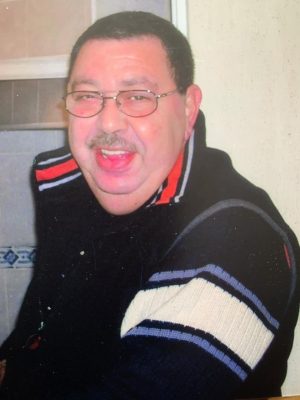
Israel Hollo
Lovegrove says he’s attending to more and more calls like this. He has visited palliative patients more than once a week over the past month. “It’s important to be able to honour patient and family wishes to keep them home and comfortable instead of having them sit on a stretcher and wait for hours in the emergency department,” he says.
CPER is a “Regional Base Hospital” for the province, along with seven other hospitals. This service is just one of the regional services that HHS offers.
Kathy Winter, a quality specialist with CPER, says the program is a stellar example of a patient-centered approach to care. “This program with Niagara EMS, which has seen over 700 patients since it began in late 2019, has been a huge success for patients, paramedics and the community,” she says. “We work in close collaboration with Home and Community Care Support Services as well as the Regional Palliative Care Network to provide a truly coordinated care approach for this special population.”
“This new model of care that responds to 911 calls from patients and supports them in their homes may prevent patients going to the emergency department if that is the patient’s preference and their condition allows it,” says Winter.
Hollo and his family are very grateful the Niagara paramedic team responded in the way they did. “It is important to note that the palliative branch of the paramedics works,” says Hollo. “It takes a special individual to do this type of work and I can assure you that you have the right people in place.”

